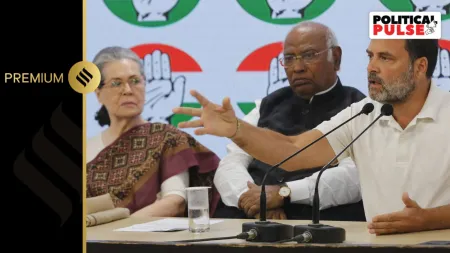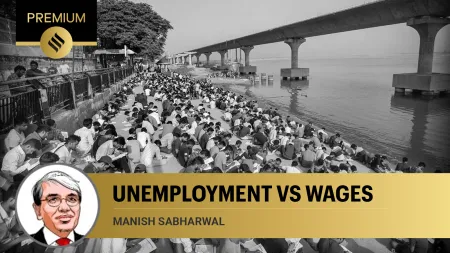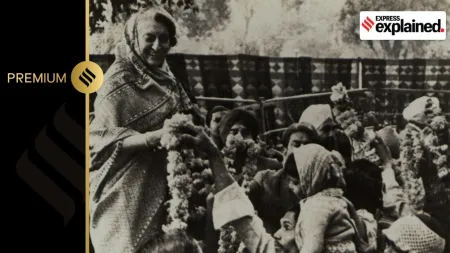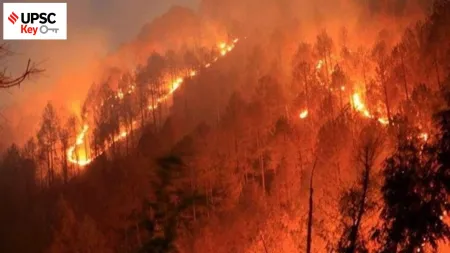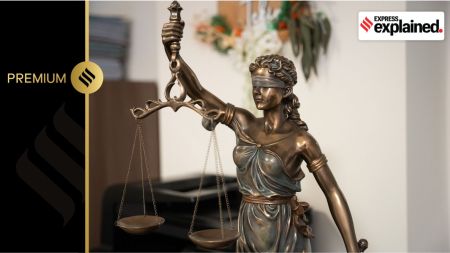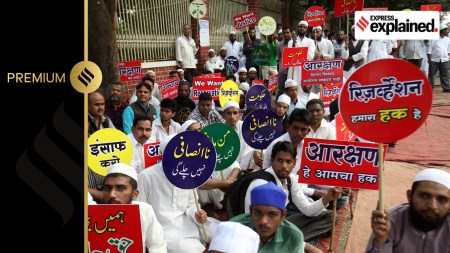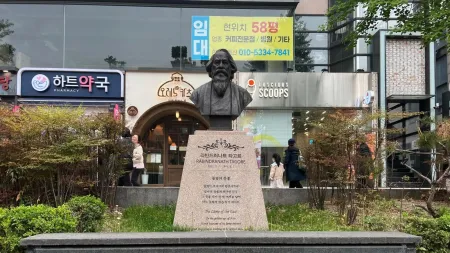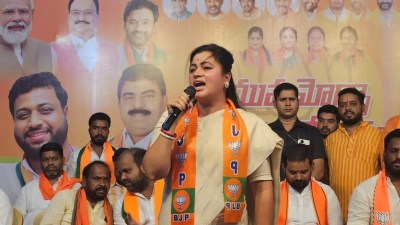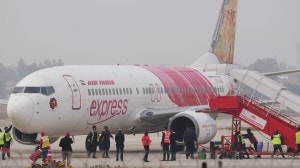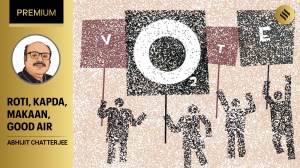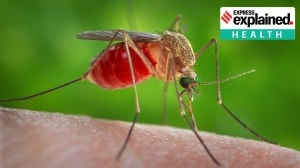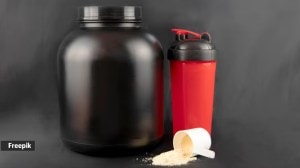- India
- International
Explained: Here is why petrol and diesel prices are rising
Since India imports most of the fuel required to meet its demands, the price of fuels rises in tandem with global prices.
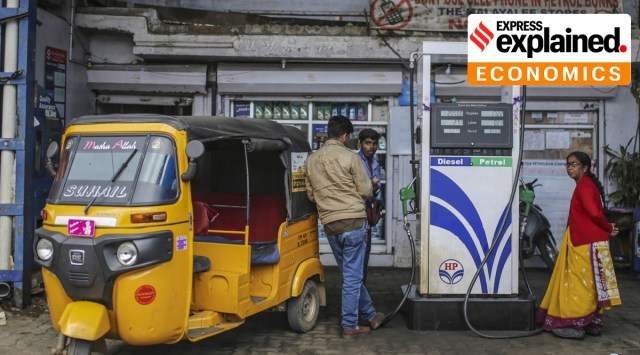 An auto-rickshaw sits parked at a Hindustan Petroleum Corp. gas station in Coonoor, Tamil Nadu, India. (Bloomberg Photo: Dhiraj Singh)
An auto-rickshaw sits parked at a Hindustan Petroleum Corp. gas station in Coonoor, Tamil Nadu, India. (Bloomberg Photo: Dhiraj Singh)Oil marketing companies have hiked the prices of petrol and diesel by over Rs 2 and by nearly Rs 3.50 respectively since November 19 after holding them unchanged for 59 days. Diesel is currently retailing at Rs 73.87 per litre in the capital, while petrol is retailing at Rs 83.71 per litre. On Wednesday (December 9), petrol was selling at Rs 90.34 at pumps in Mumbai, according to data released by the Petroleum Planning and Analysis Cell (PPAC). Retail fuel prices in India are now the highest since October 2018.
What is causing petrol and diesel prices to rise?
Rising global crude oil prices and an improved demand outlook for petroleum products due to the prospects of a viable vaccine for Covid-19 are the key reasons behind the recent rise in the prices of petrol and diesel, according to experts.
The price of Brent crude has risen to almost $49 per barrel, its highest level since early March. The price of Brent crude crashed from $66 per barrel at the beginning of the year to $19 per barrel in April due to global restrictions on travel as countries shut down to control the transmission of the novel coronavirus.
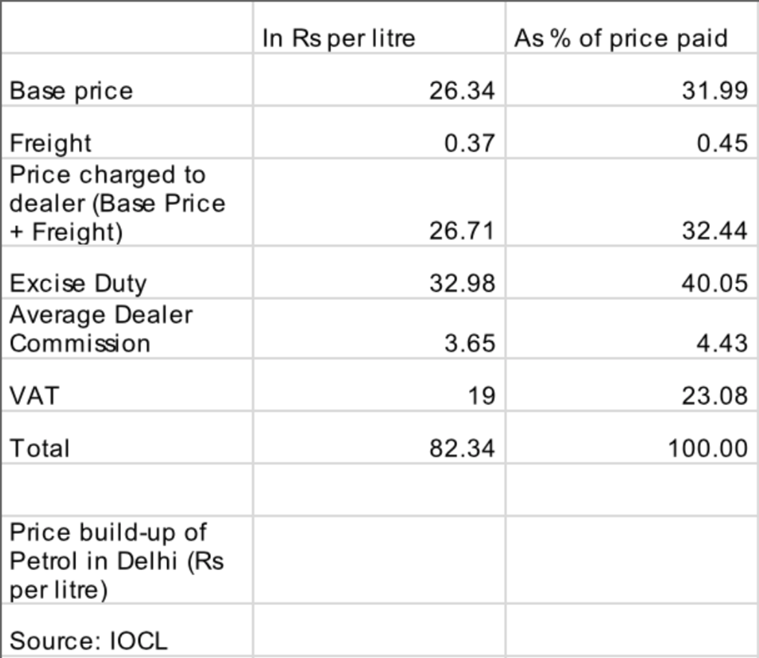 Excise duty levied by the Centre is the biggest component of the price of petrol in Delhi (Table 1)
Excise duty levied by the Centre is the biggest component of the price of petrol in Delhi (Table 1)
Since India imports most of the fuel required to meet its demands, the price of fuels rises in tandem with global prices. Domestic prices of petrol and diesel are revised by oil marketing companies based on changes in the international prices of petrol and diesel.
However, as global crude prices crashed and India went into lockdown, Indian OMCs stopped revising the prices of petrol and diesel for over 80 days.

“Globally crude oil prices have been moving up. The improvement in the demand outlook due to the improving prospects of a vaccine has been reflected in a widening of cracks for petrol and diesel,” said Vivekanand Subbaraman, analyst at Ambit Capital. He noted that the impact of the recent rise in crude oil prices had likely been incorporated through recent price hikes.
Crack spreads are the difference between the price of a barrel of crude oil and that of a refined petroleum product such as diesel or petrol. 📣 Follow Express Explained on Telegram
How many revisions have been made to the price of petrol and diesel this year in India?
The latest 30-paise hike in the price of petrol is the 56th revision of the price of petrol in Delhi since April 1, according to data released by the PPAC. The price of diesel has been revised for the 67th time this year by 26 paise. Except for a brief period in September-October when the prices were reduced, fuel prices have moved steadily upwards.
This increase was in part because of the additional duties and cesses levied by the Centre and the state governments. The Central Board of Indirect Taxes and Customs increased the Road and Infrastructure cess, as well as Special Additional Excise Duty on petrol and diesel in May 2020, following a similar announcement in March.
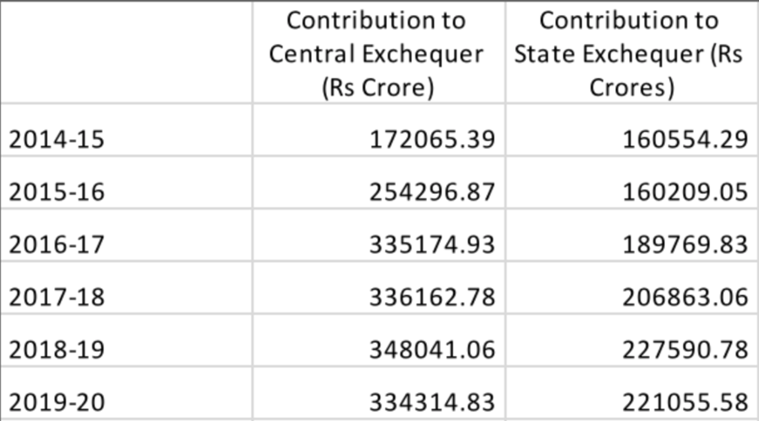 Since 2014, the revenues collected by the Centre from the sales of petrol and oil products have nearly doubled (Table 2)
Since 2014, the revenues collected by the Centre from the sales of petrol and oil products have nearly doubled (Table 2)
But why are prices higher even though crude is still cheaper than at the beginning of the year?
The central government and a number of state governments have significantly increased the duties on petrol and diesel as a way to boost revenues since the Covid-19 related lockdown severely curtailed economic activity.
This has led to the current price of petrol nearing price levels of October 2018, when the per-barrel cost of India’s crude basket hit $80.
State and central taxes currently account for around 62% of the retail price of petrol and around 57.5% of the retail price of diesel in Delhi.
The central government has increased the excise duty on petrol to Rs 32.98 per litre from Rs 19.98 and at the beginning of the year, and increased the excise duty on diesel to Rs 31.83 per litre from Rs 15.83 over the same period.
Many states, including, Delhi, Maharashtra, Tamil Nadu, and Karnataka have also hiked state levies on petrol and diesel since the beginning of the fiscal to boost revenues.
By how much have the prices varied in India?
In Mumbai, where consumers pay the highest fuel prices among metros, the price of petrol has increased by 11% in October compared to last year. Petrol price in Delhi rose by 10.35% compared to October last year. (The CPI inflation for the same period was 7.61%.)
What are the different components of fuel price?
Excise duty levied by the Centre is the biggest component of the price of petrol in Delhi (See Table 1). Since 2014, the revenues collected by the Centre from the sales of petrol and oil products have nearly doubled (see Table 2).
Value added tax (collected by the state on the price of petrol as well as the dealer’s commission) makes up less than a quarter of the price.
Together, the taxes and duties amount to 63% of the cost of petrol in Delhi. The base price of petrol is less than a third of the price at which a buyer in Delhi gets it from the retailer. The retailers’ commissions and freight charges along with the base price make up a little over a third of the price.
More Explained
EXPRESS OPINION
May 09: Latest News
- 01
- 02
- 03
- 04
- 05


